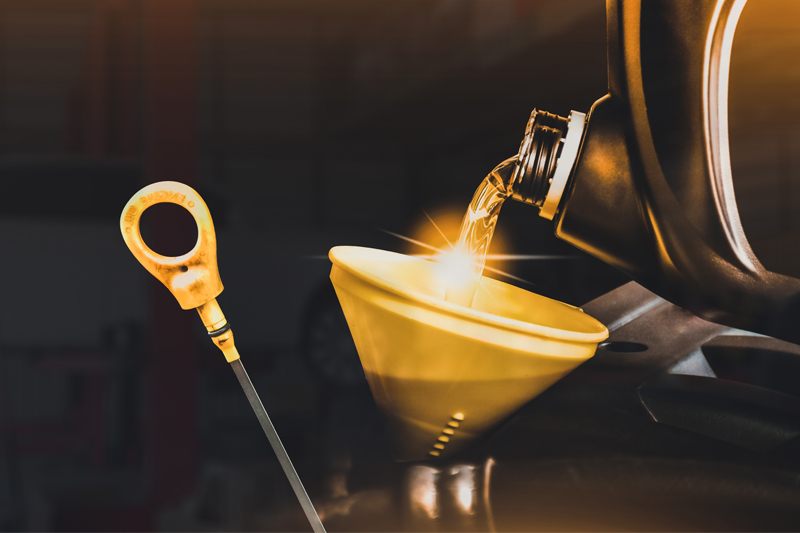
PMM sat down with Jacquie Berryman, Chair of the Verification of Lubricant Specifications, to catch up on her plans for her role as VLS chair and the wider issues VLS will need to address in the coming year.
You recently took over as Chair of VLS. How are you finding the role so far?
Having been involved with VLS since 2015 as a member of the Supervisory Board, I am very familiar with the work of VLS. The past few years have been incredibly busy. In 2023, VLS received the highest number of cases since 2016. We believe that is a testament to the work VLS has done to raise awareness of the importance of lubricant standards. Over the past twelve months, the diversity of cases received has been greater than ever before as awareness of VLS extends across all aspects of the UK lubricants industry.
What are your key objectives as Chair?
I am keen to support the lubricants industry through the transition to alternative fuels, the implementation of Euro 7 and the recent introduction of the ACEA 2023 engine oil sequences for light-duty engines, which launched over the summer, as well as maintain VLS’s track record in supporting greater compliance.
VLS has an important role to play in helping lubricant manufacturers and marketers navigate a complex and changing market. We must also continue to support and educate end users by upholding industry standards, ensuring that retail consumers are protected and that workshops can fit products with confidence, whatever the type of vehicle or engine.
Why is VLS so important?
Back in 2013, the Verification of Lubricant Specifications was formed amid concerns that some lubricant products were being sold with claims that did not seem to be believable. Closer inspection found that occasionally sub-standard formulations were being passed off as the latest specifications or even failing to perform effectively. The vast majority of lubricants sold in the UK market at the time were fully compliant, as they remain today. However, out of this concern, reputable lubricant blenders and manufacturers came together to launch VLS.
Since then, VLS has investigated over 90 different lubricant complaints from low temperature properties through to compliance with industry standards and market regulations. Our work enables lubricant companies to compete on service, value and product quality whilst assuring the claims made on lubricant products are valid and reliable. The lubricants industry is in a time of immense change in response to OEM design changes and the need to meet increasing emissions legislation. It’s more important than ever that we have a robust, anonymous process that holds producers to account and protects end users.

What challenges will VLS be tackling in the coming year?
The contribution of engine oil has been increasingly recognised by OEMs. No longer just a consumable, the lubricant is viewed as an essential component in the same way as any other car part. This was officially recognised within the Motor Vehicle Block Exemption Order, which replaced the MVBER in the summer. The right lubricant properties can assist OEMs in delivering fuel economy and meeting emissions regulations whilst providing engine durability. We expect this focus on lubricant performance to increase, leading to further complexity and a continued rise in the number of different specifications for manufacturers, marketers and end users to understand.
Over the past few decades, we’ve seen a trend towards lower viscosity oils. We expect this trend to continue, with ultra-low viscosity engine oils such as SAE 0W-8 being considered by some automotive manufacturers. Whilst these ultra-low viscosity fluids are perfectly designed for the latest generation of sophisticated engines, using a 0W-8 oil in an older vehicle, which requires a 5W-40, for example, could starve the engine of the protective lubricant film it needs, leading to accelerated wear.
EV fluids
The strive towards electrification has created a whole new market of Electric Vehicle (EV) fluids. Industry knowledge of these products is still scarce. Tests and specifications are under development by the OEMs and technology providers to regulate this emerging market and protect end users. Once specifications are in place and market standards are established, VLS will respond to raise awareness within the industry and ensure products meet the claims made.
Any further increase in the renewable or bio-ethanol content of petrol or diesel in the UK may also have a significant impact on lubricants. With the increased use of biofuels, the lubricant could thicken as a result of oxidation, which could degrade engine performance, leading to decreased efficiency. Engines running on biofuels must be capable of managing higher levels of oxidation caused by the combustion of unsaturated carbon bonds present in the fuel. Treating oxidation and ensuring the presence of corrosion inhibitors will help prevent engine wear. The use of biofuels could also increase the level of carbon deposits arising from oxidation in the piston ring grooves, which could restrict the movement of the rings and increase friction and wear in the cylinders. Or it could cause higher levels of abrasion on the parts of the piston rings that come into contact, leading to higher rates of component wear. VLS will work closely with producers and OEMs to understand what the impact may be and any specification changes that might be required.









